Can You Have Milk on a Renal Diet?
Have you ever wondered if milk can be part of a renal diet? It’s an important question for those with kidney disease, as they must follow strict dietary guidelines to stay healthy.
The answer is not simple and depends on the individual person's medical condition. In this article, we will explore the various factors that should be taken into account when considering dairy consumption in a renal diet.
The kidneys are two bean-shaped organs located near the middle of your back that filter waste products from your blood and excrete them through urine.
When these vital organs don't work properly due to kidney disease or other health problems, it can cause serious complications including electrolyte imbalances, fluid overload, and even organ failure if left untreated.
For this reason, people with chronic kidney disease need to pay special attention to their diets in order to minimize any potential complications caused by eating certain foods in excess.
Together, we'll go through the chronic kidney disease diet food list to see if you can have milk on a renal diet.
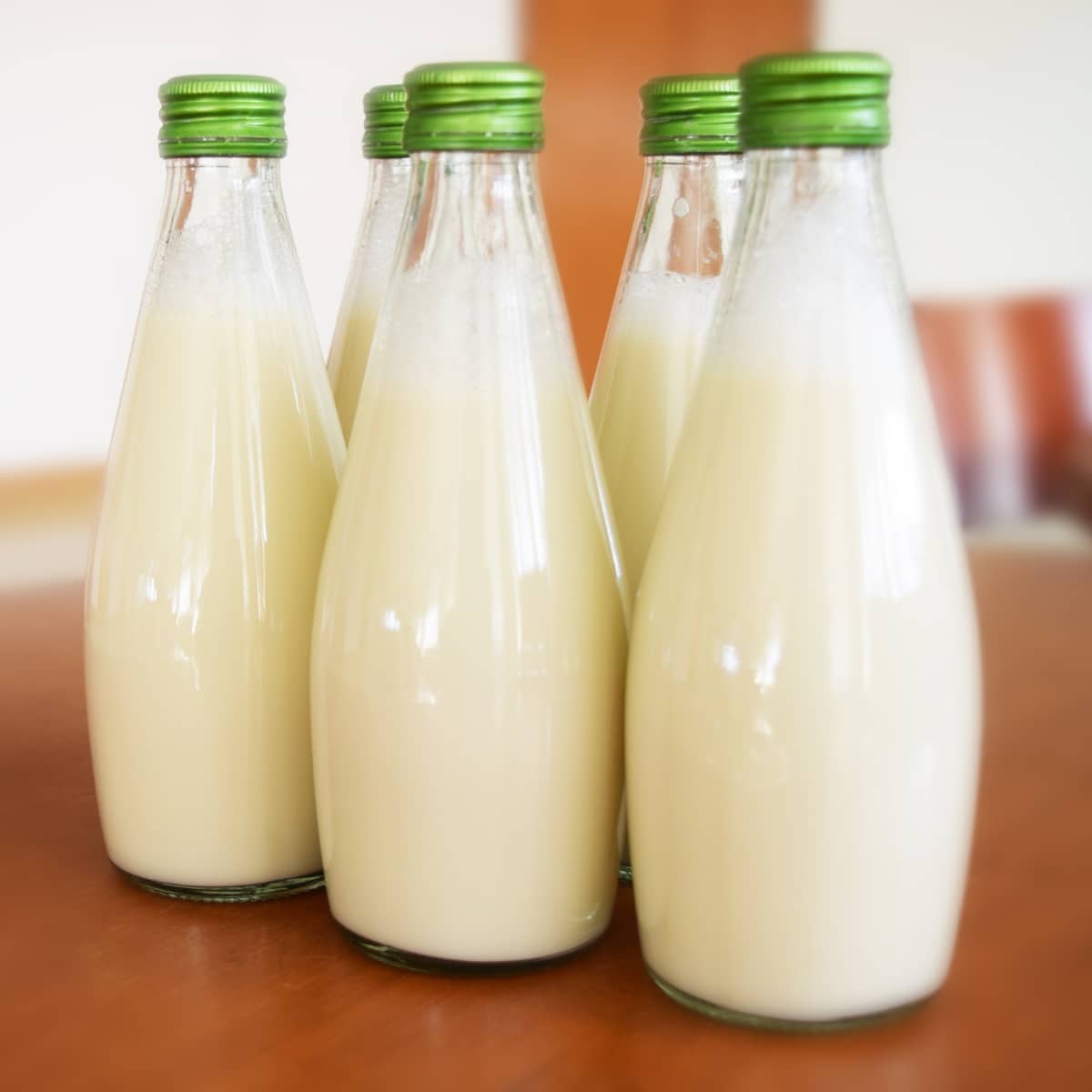
When it comes to deciding whether or not milk is suitable for someone on a renal diet, there are several things that one should consider – including lactose intolerance, calcium intake needs, phosphorus and potassium content of different types of milks available and protein content that may vary among different types of milk .
Jump to:
- Can Milk Be Included In A Renal Diet?
- Types Of Milk Suitable For A Renal Diet
- Nutritional Benefits Of Milk For Kidney Disease Patients
- Ways To Incorporate Milk Into Your Renal Diet
- Potential Risks Of Drinking Milk With Kidney Disease
- Tips For Making The Switch To Non-Dairy Milks And Other Substitutes
- How Often Should You Drink Milk On A Renal Diet?
- Tips To Make Dairy Products Healthier For People With Kidney Disease
- FAQ's About Milk and CKD
- Yes, You Can Have Milk On A Renal Diet!
Can Milk Be Included In A Renal Diet?
Yes, milk can be included in a renal diet, with some considerations and modifications. For people living with kidney disease, dairy milk may not always be the best option due to its high potassium content.
However, other non-dairy milks are available that offer nutritional benefits while being lower in potassium than traditional cow’s milk.
These include plant-based milk alternatives such as unsweetened almond (almond milk side effects on kidneys) and coconut milk, as well as soy beverages made from fortified calcium sources.
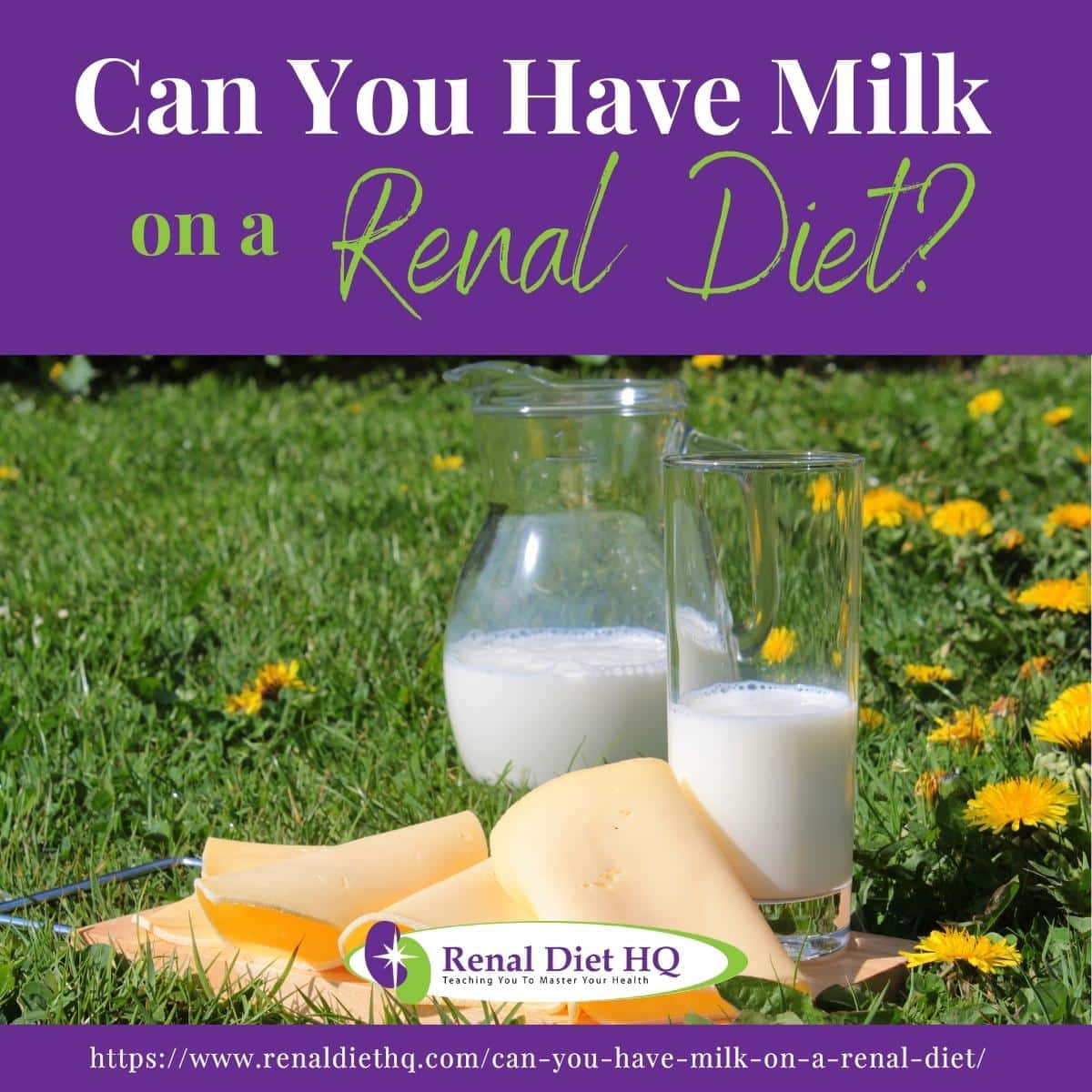
When choosing non-dairy milks for your renal diet, make sure to select those without added sugar or flavors and check ingredient labels for sodium content since this can influence how much fluid you consume throughout the day. There are fluid restriction guidelines for CKD.
Ultimately, discuss these options with your healthcare professional before incorporating any changes into your renal dietary plan.
Types Of Milk Suitable For A Renal Diet
There are several non-dairy milk substitutes on the market today that will help chronic kidney disease (CKD) patients stay away from animal product-based milk types. You will want to read nutrition labels and renal diet food list for any of the alternative options you are considering.
Some may still have too many of specific minerals that you must limit as part of your renal diet. Generally, you will want to note the protein, potassium, calcium and phosphorus content of the substitute you choose.
Also, don’t get too comfortable buying the same plant-based milk option week after week.
Product formulas can change over time, and a milk alternative currently low in phosphorus may be fortified with extra phosphorus six months from now. Make sure you ask yourself questions like, when should I limit phosphorus with CKD?
Hence, it is always important to be vigilant when checking the ingredient list of every milk product you purchase
The following list offers some options CKD patients have for non-dairy milk substitutes for animal milk along with popular brands of milk alternatives:
Soy milk (Edensoy), Rice milk (Rice Dream), Non-dairy creamer (Nestle Coffee, Rich’s Coffee), Almond milk (Almond Breeze)
| Beverage | Serving Size (cup) | Calories | Protein (g) | Carbohydrate (g) | Fat (g) | Sodium (mg) | Potassium (mg) | Phosphorus (mg) |
|---|---|---|---|---|---|---|---|---|
| Soy Milk | 1 | 80 | 8 | 4 | 4 | 125 | 180 | 115 |
| Unflavored Rice | 1 | 120 | 0 | 27 | 2.5 | 10 | 300 | 25 |
| Non-Dairy Creamer | 2 Tbsp | 45 | 0 | 5 | 4 | 10 | 0 | 0 |
| Almond Milk | 1 | 30 | 1 | 2 | 2.5 | 120 | 480 | 30 |
| Oat Milk | 1 | 130 | 3 | 25 | 2.5 | 115 | 370 | 50 |
Many of these are popular not only among CKD patients, but also for those who adhere to plant-based diets. Almond milk is made from ground almonds blended with water and has a creamy texture. It's naturally low in sodium but contains no cholesterol or saturated fat.
Almond milk also provides an excellent source of vitamin E, which helps reduce inflammation associated with kidney disease.
Soy milk is derived from processed soybeans and offers the same nutritional benefits as cow’s milk without any added sugar or preservatives.
It is high in protein and essential fatty acids like omega-3s that help maintain healthy blood pressure levels for people with CKD.
Rice milk is produced by grinding white or brown rice into flour then adding water before boiling the mixture until it forms a thick consistency.
While this type of milk does not contain lactose or gluten, it can have more carbohydrates than other plant-based milks due to its higher starch content.
Other popular choices include oat milk and cashew milk. Oat milk is a plant-based option that has 0 mg of cholesterol per serving and contains beta-glucans which can help lower bad cholesterol levels.
On the other hand, cashew milk is another good option which not only has an enjoyable flavor but is also packed with essential vitamins including B6, thiamine, riboflavin & niacin. It’s also a great source of healthy fats!
For those following a kidney diet, these alternative milks provide important vitamins and minerals while still being lower in potassium than traditional dairy products.
Furthermore, they offer greater variety when looking for ways to meet daily nutrition needs without overloading your kidneys with extra work!
For More Recipes and Ideas --->> Get Your Free Meals and Recipes That Are Perfect for Pre-Dialysis Diets, Pre-Dialysis with Diabetes, or Dialysis Diets.
Nutritional Benefits Of Milk For Kidney Disease Patients
The health benefits of milk for chronic kidney disease patients on a renal diet are often overlooked. Milk is packed with essential vitamins and minerals that can provide nourishment to those suffering from this condition, but it’s important to note that not all types of milk are created equal.
Studies have shown that dairy-free plant-based options like almond or coconut milk may be the best choice for people with kidney disease.
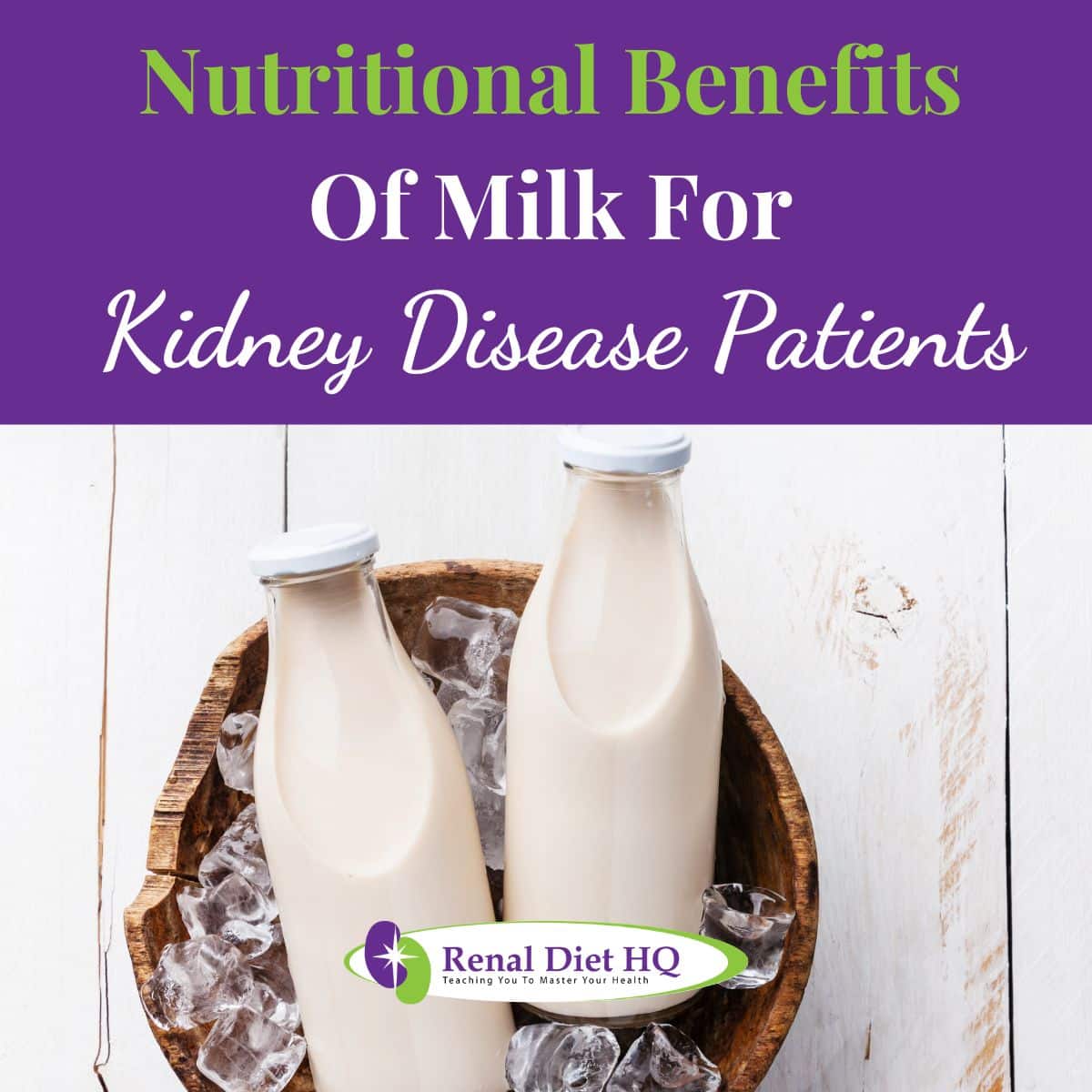
Non-dairy milks also contain nutrients such as vital nutrients such as calcium and magnesium, and lower amounts of phosphorus and potassium which are ideal for patients with CKD.
They also offer other nutritional benefits such as plant protein, fiber and healthy fats – making them an excellent source of nutrition for individuals with kidney disease who need to follow a restricted dietary plan.
Additionally, non-dairy milks are typically lower in sodium than regular cow's milk, meaning they won't aggravate existing conditions related to high blood pressure or fluid retention.
When choosing a non-dairy milk alternative for someone with kidney disease, look for one fortified with additional vitamins and minerals found in cow's milk - including vitamin D and B12 - as well as sources of omega 3 fatty acids like flaxseed oil or chia seed oil.
Taking these steps will help ensure your loved one gets the most out of their food choices while keeping their kidneys functioning at optimal levels. It is possible to begin improving kidney function with diet.
Ways To Incorporate Milk Into Your Renal Diet
Yes, you can have milk on a renal diet. It's important to remember that the amount and types of dairy products are limited when following this type of meal plan. You should consult with a doctor or registered kidney dietitian for specific recommendations tailored to your individual needs.
If you're looking for ways to incorporate milk into your renal diet, there are several options available to you. For example, reduced-fat or nonfat cow’s milk is an excellent source of calcium and other nutrients essential for health.
Soy beverages may also be substituted in place of regular cow’s milk if desired. Just make sure they contain no added sugar or sweeteners as these could potentially derange your blood sugar levels especially if you also have diabetes.
In addition to drinking low-fat versions of traditional dairy products, consider incorporating unsweetened plain yogurt into meals and snacks throughout the day. You could also give Greek yogurt for CKD patients a try!
Yogurt provides both protein and probiotics which help maintain a healthy digestive system – two things that are especially important when managing CKD.
There are even lactose-free varieties available for those who have difficulty digesting milk sugars due to CKD complications.
With careful planning and guidance from a healthcare professional, such as a renal dietitian, it’s possible to enjoy the benefits of milk while still sticking to your kidney-friendly diet!
Potential Risks Of Drinking Milk With Kidney Disease
Drinking milk on a renal diet can be a risky endeavor. In fact, it's potentially catastrophic for those with kidney disease! Too much dairy could have dire consequences, such as an increase in blood pressure or potassium levels that are too high.
The risks associated with consuming dairy products while following a renal diet are severe and shouldn't be taken lightly. Not only may calcium-rich foods like milk worsen phosphorus retention, but they can also potentially interfere with some medications used to treat kidney diseases.
So if you're looking for alternatives to cow’s milk, try almond, coconut, cashew, soy or oat milks, which provide more healthful options for people with chronic kidney disease.
Take care to always consult your doctor before making changes to your dietary regimen. If you're thinking "my doctor prescribed a renal diet" - then these tips are for you!
Being guided by your trusted healthcare practitioner ensures that you can safely enjoy your meals even with your dietary restrictions.
Tips For Making The Switch To Non-Dairy Milks And Other Substitutes
It may not be easy to make the switch from dairy milk to non-dairy alternatives, but with a few helpful tips, it can be done.
When trying to reduce your sodium and potassium intake due to kidney disease, there are many options for choosing substitutes for milk that will fit into your diet. Check out these meals made with milk alternatives.
The first step is to find what type of non-dairy substitutes work best for you. As previously mentioned, there are plenty of great alternatives such as soy milk, almond milk, cashew milk, oat milk, coconut milk, hemp seed and flaxseed milks.
Each one has its own unique flavor profile as well as different nutrient values, so it’s important to try out several types until you find one that suits your taste buds and nutritional needs best.
Additionally, when shopping for these alternative milks look for unsweetened versions as many contain added sugars which could be detrimental to your health.
Another great way to get creative with non-dairy milks is by making them at home! There are tons of recipes online that show how to easily create homemade plant-based milk from scratch using nuts and other plant-based sources such as oats and seeds.
This eliminates the need to buy pre-made products which often come in single-use containers and can be more expensive than making it yourself at home.
Making homemade vegan milks also gives you complete control over ingredients. This includes adding little to no sugar, and putting in some flavoring like spices or cacao powder if desired!
No matter what dietary needs or lifestyle preferences you have, there is likely a non-dairy substitute available that will fit perfectly into your diet. With some experimentation, you should soon find the perfect option that works for you while helping support optimal kidney health!
How Often Should You Drink Milk On A Renal Diet?
When making the switch to non-dairy milks and other substitutes in your meal plan, it is important to consider how often you should have dairy products on a renal diet.
Milk consumption guidelines can vary depending on your individual needs, so it is best to consult with a healthcare professional before making any major changes in your eating habits.
In general, those who are following a renal diet need to be mindful of their dairy product intake frequency and limit their portion sizes when consuming milk or cheese.
It is recommended that people restrict their daily dairy product intake to two servings per day or less. Those who are lactose intolerant may want to avoid drinking milk altogether as it can worsen symptoms such as bloating, gassiness, and even diarrhea.
Additionally, some individuals might benefit from reducing their overall dairy consumption due to its high phosphorus content which could cause complications for those with kidney disease.
It’s essential to talk with your doctor about what type of food plan they recommend based on your specific medical history and lifestyle needs. You could even try out this 7-day meal plan for kidney disease and diabetes.
They will help ensure that you get all the nutrients you need while avoiding too much of certain foods that can be potentially harmful in excess.
With careful monitoring and guidance, you should have no problem keeping track of your dietary needs while still enjoying some delicious meals!
Tips To Make Dairy Products Healthier For People With Kidney Disease
For those living with kidney disease, dairy products such as milk remain to be an important part of their diets, but there are limitations due to their health condition.
To make these foods healthier for people on a renal diet, they should opt for low-phosphorus versions like skim or 1% milk that are fortified with calcium and vitamin D.
These types of dairy products will help reduce phosphorus intake while providing essential vitamins and minerals necessary for healthy functioning. There is a list of low phosphorus foods that you can check out!
Additionally, getting creative in the kitchen by using non-dairy alternatives like almond milk instead of cow's milk may be beneficial when trying to stick to a renal diet.
No matter what your dietary needs are, there will always be a suitable and healthy alternative waiting to be discovered!
With careful planning and mindful dietary choices, individuals living with kidney disease can enjoy delicious food and renal diet drinks, even milk, that meet their nutritional requirements.
FAQ's About Milk and CKD
The nutritional value of milk may different depending on the kind you consume. Whole milk, for example, offers 60 calories per ½ cup. For the same serving, you also get 3.2 grams of protein and 5.1 grams of sugar.
For those losing or maintaining weight, you may want to reduce your calories by switching to fat-free (skim) milk. For ½ cup of skim milk, you will only take in 45 calories but still get about 4 grams of protein.
The majority of the protein in milk is called casein, which in itself comes with many health benefits. This makes milk a good source of protein. It can help your body better absorb the calcium and phosphorus present in the milk. It can also help to reduce your blood pressure which will reduce strain on your blood vessels.
Milk is also high in many other nutrients, including Vitamin B12 and Riboflavin. Sometimes, milk is fortified with Vitamin D to offer even more benefits of drinking the dairy product.
On this diet, you will get really good at reading nutrition facts labels with CKD!
Dairy products can provide a range of nutrition benefits, but it is important to understand the role they play when considering a renal diet.
Vitamin and mineral content are often included in food labels, so it is important to check them prior to making a purchase.
For those with kidney disease, understanding the nutritional content and potential health benefits provided by dairy products can help them make well-informed decisions about their food choices:
Calcium: Milk products are a good sources of calcium, along with other dairy foods such as cheese, yogurt, and ice cream.
Calcium aids in bone health and muscle health. It is also good for the teeth and in helping regulate muscle contractions, nerve impulses, and blood clotting.
Vitamin A: Milk contains retinol which helps keep eyesight healthy while also aiding in skin cell growth.
Protein: Essential for maintaining healthy organs, muscles tissue repair and growth; whey protein found in dairy can contribute to these functions without adding additional saturated fats to your diet.
A low-protein diet is recommended for pre-dialysis CKD, while higher protein intake is a must for those already on dialysis.
Potassium: This mineral helps maintain fluid balance within cells while also keeping heart rhythms regular.
While this is a vital nutrient, excessive potassium intake should be avoided since diseased kidneys have limited ability to eliminate them when taken in excess.
Why do you need a pre-dialysis diet plan? Including appropriate amounts of nutritious dairy products into a renal diet can help ensure an individual gets all the essential nutrients needed for good health.
While moderation should always be taken into consideration due to its high fat and phosphorus content, incorporating dairy items into one's daily intake will not only provide valuable sources of vitamins and minerals but promote overall well being, too.
When it comes to milk and kidney disease patients, there is no “one-size-fits-all” as to how much should be consumed each day.
Although dairy products are rich in several essential vitamins and minerals that can benefit those with renal conditions, it is important to understand the right amount for individual needs.
Hence, it is vital to discuss with your kidney dietitian about what kind of milk and how much of it would best suit you individually based on your needs.
This can make sure you get all the nutrients you need whilst keeping risks of excesses at bay.
When it comes to kidney disease, diet plays an important role in maintaining health. Eating the right foods can help people with kidney disease manage their symptoms and live healthier lives.
But what other foods besides dairy products are beneficial for those with kidney disease?
There are plenty of delicious, kidney-friendly food options available that provide essential nutrients without overworking the kidneys. Low-potassium recipes can be found online to help develop a renal diet tailored to one's individual needs.
Here is a list of some healthy alternatives for individuals living with kidney disease:
Whole grains such as oatmeal, bran bread, and brown rice. Lean animal protein sources like fish or chicken Low-Potassium fruits such as apples and tropical fruits such as pineapples and watermelon
By focusing on eating these types of nutrient-rich foods, people with kidney disease can create tasty meals while also providing their bodies with the nourishment they need.
It is best to stick to natural foods and avoid premade items such as frozen meals that may not only have excess amounts of salt but also lack nutrients.
Additionally, individuals should consult with their doctor and kidney dietitian before making any major dietary changes in order to ensure that all nutritional requirements are being met.
With this information in hand, everyone has the potential to make informed decisions and reach their health goals, despite living with CKD.
Yes, You Can Have Milk On A Renal Diet!
It's no secret that people with kidney disease have to follow a special diet. But what about milk? Can you have it on a renal diet? Absolutely! In fact, when consumed in moderation, dairy products can be beneficial for those with kidney issues. Knowing and understanding the best milk for ckd is important.
Is almond milk bad for the kidneys? For starters, non-dairy milks like soy and almond are excellent alternatives to traditional cow’s milk.
These also contain important vitamins and minerals which can help support your health without overloading your kidneys with excess nutrients like phosphorus which may be difficult to eliminate.
Furthermore, drinking small amounts of cow’s milk each day is also helpful – just make sure not to overdo it!
Finally, there are plenty of other foods besides dairy that provide essential nutrition for those with chronic kidney disease.
Eating low-potassium fruits and vegetables rich in antioxidants; lean proteins such as fish and chicken and plant-based protein like tofu; whole grains like bran flakes cereal, quinoa or oats; and healthy fats found in nuts are all excellent choices. Follwoing a low potassium diet for kidney disease is quite common!
If you want to ensure optimal healthy diet for yourself or your loved ones suffering from CKD, these dietary options should be at the top of your list.
With proper guidance from medical professionals (speak to a nephrologist if you can), your individual dietary needs can be prioritized without missing out on certain foods, such as milk!





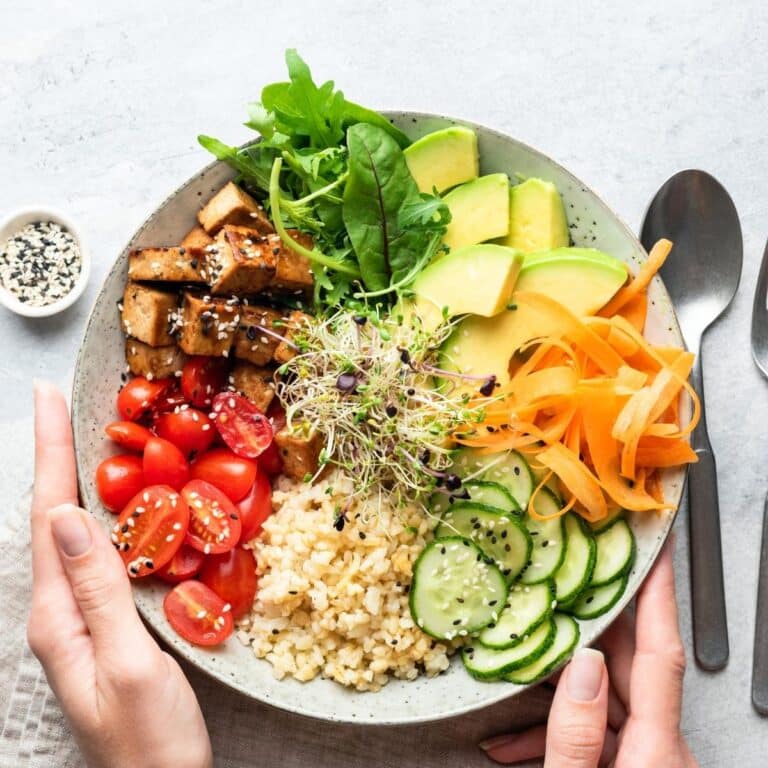
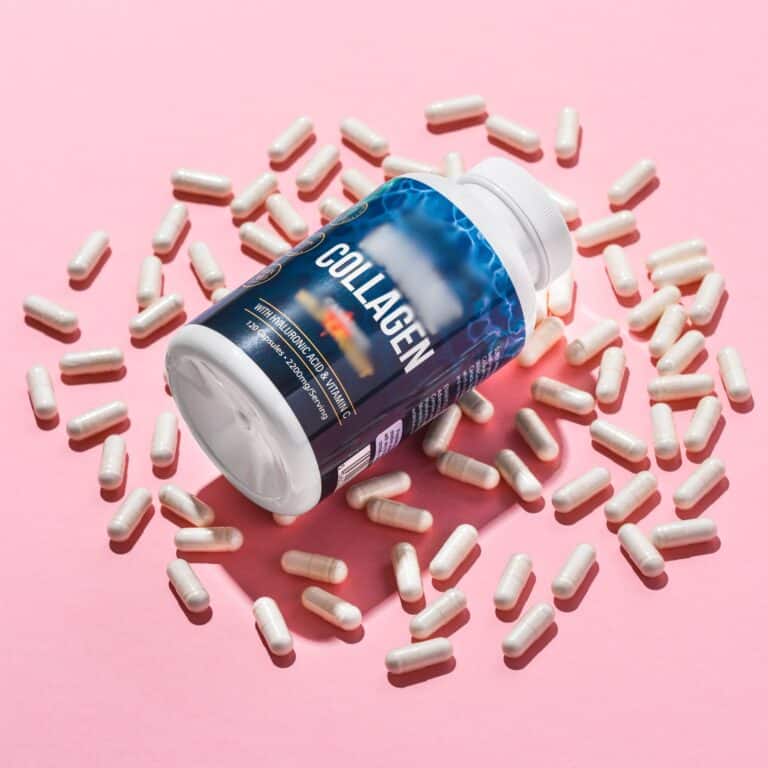
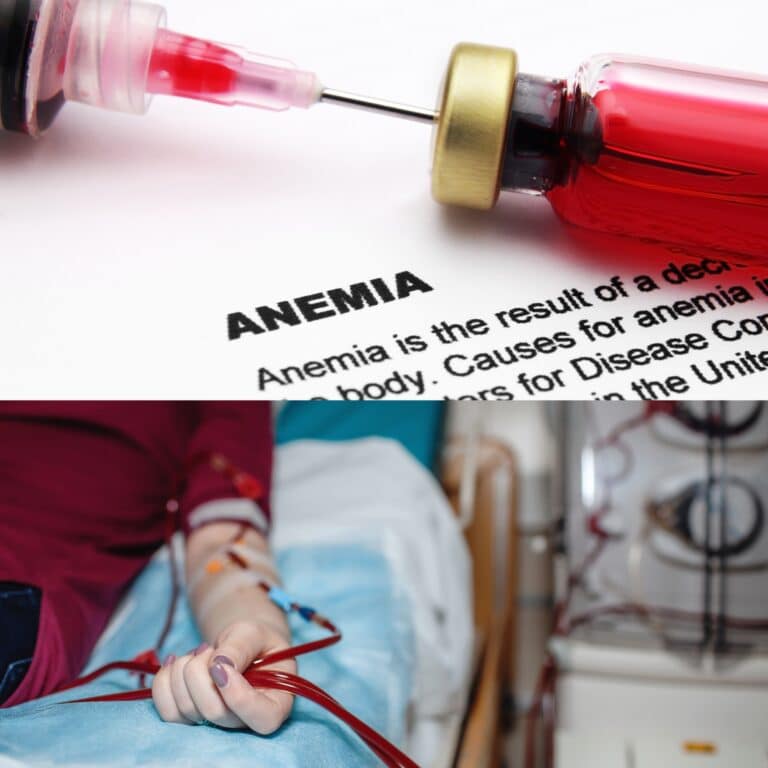
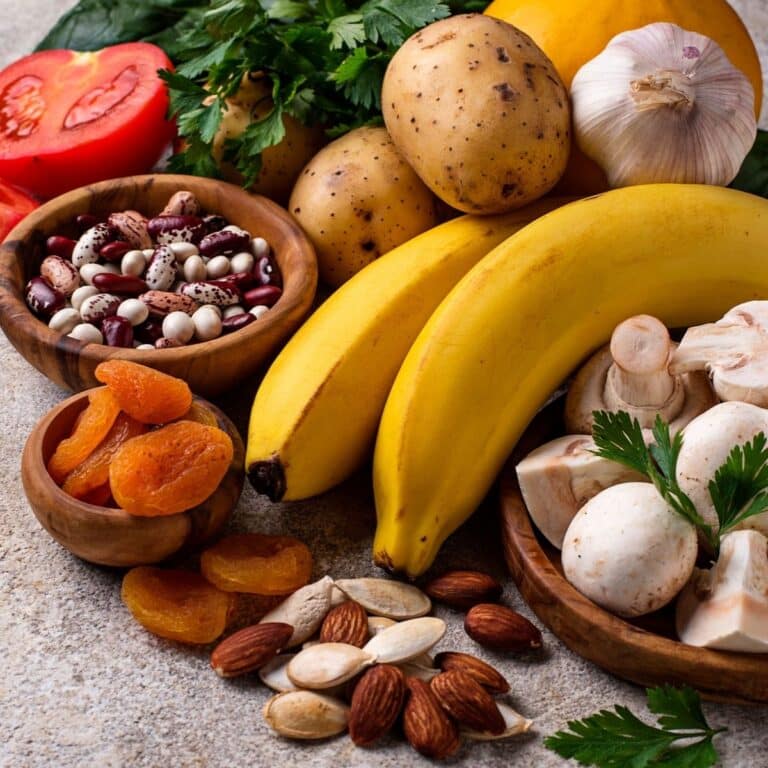

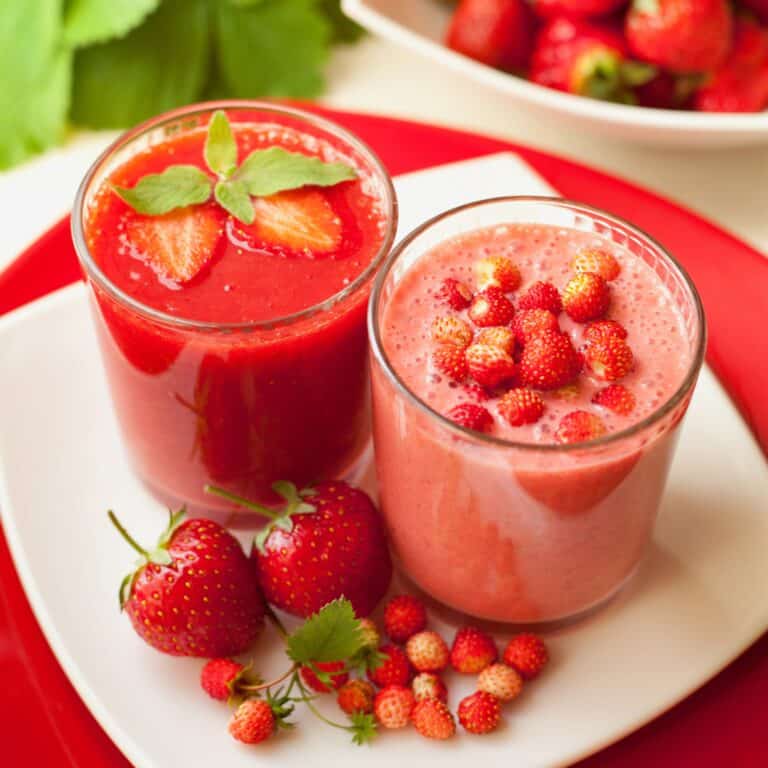


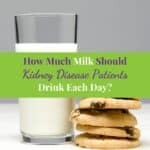
I have CKD stage 3. GFR right now is around 44. It has steadily dropped over last 3 years which tells me dialysis is in my near future. Over the last three years i have accumulated a 3 drawer file cabinet with bits and pieces of information re kidney disease, what to do, what not to do, what to eat and what not to eat, etc. etc. I am sure there are many others like me who have done the same thing. We read and read until we are overwhelmed with all the info. available. Actually way too much! We read and read then file it and later start all over again hoping something new turns up. And, others like me, years from when we were first diagnosed with CKD, we are no further ahead . This is all because of the overwhelmingly enormous amount of info that obviously can't all be read, absorbed and taken advantage of.
Like yours, most other websites are long and full of links to other sources of information . A person could spend full time looking, reading, etc.
Treating (if that's the correct word) this condition can't be all that complicated. Surely there must or should be one current book that covers everything someone would need to know. Unfortunately i have yet to locate it. Thanks.